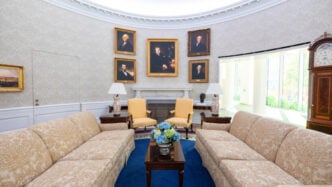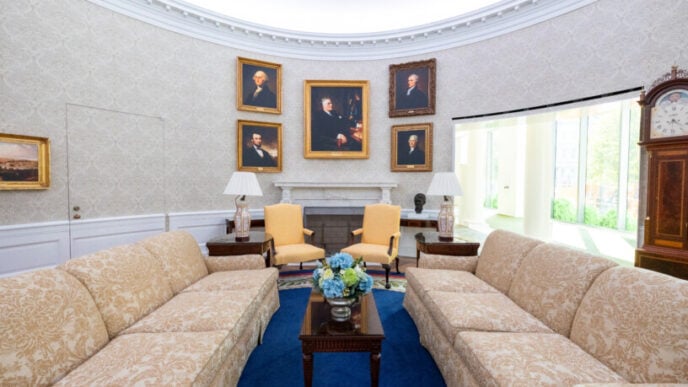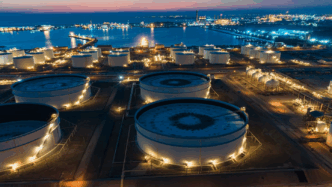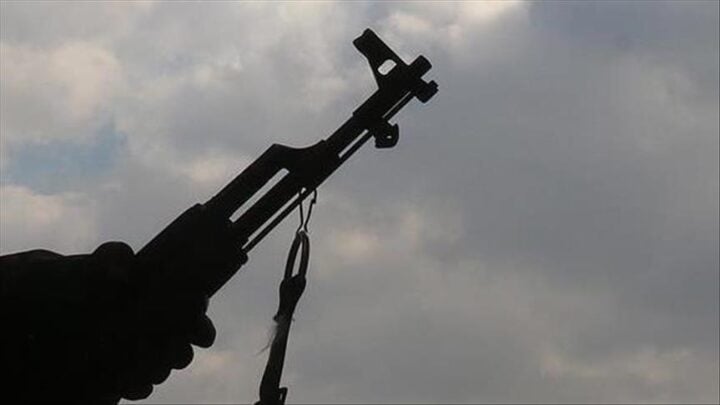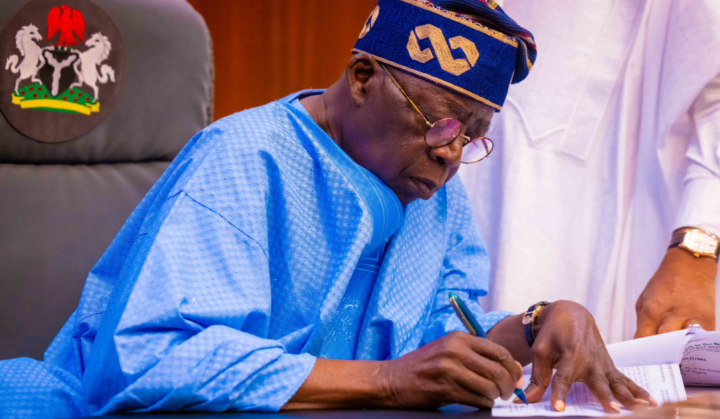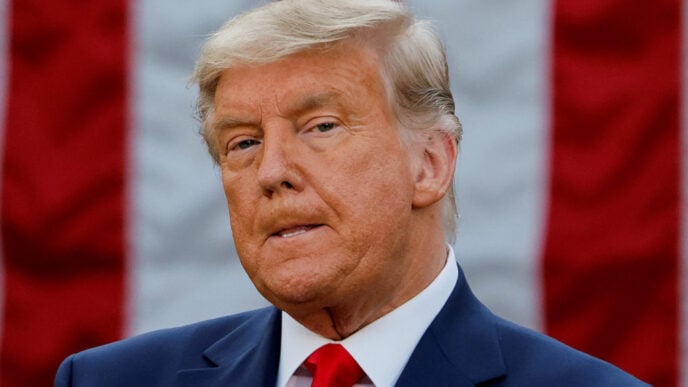Donald Trump
The designation of Nigeria as a “Country of Particular Concern” (CPC) by the United States government, citing egregious violations of religious freedom, did not arrive as a surprise. It was the predictable climax of months of clear, publicly telegraphed warnings from US congressional figures and human rights groups. Yet, this inevitable consequence still caught the Nigerian leadership completely off balance, exposing a profound crisis in Abuja’s foreign policy apparatus. This crisis marks a collapse from a position of principled assertion to one of outright denial, diplomatic ineptitude, and a fundamental failure of the Nigerian security state. The CPC sanction is not merely a diplomatic rebuke; it is a stark indictment of a political elite fatally separated from the existential security crisis plaguing its citizenry.
This dramatic fall from grace is best understood by contrasting the current administration’s failed response with the strategic, proactive diplomacy of two former eras.
Nigeria’s diplomatic ‘Golden Generation’, active in the 1970s and early 1980s, built a formidable international reputation on the foundation of Africa as the “centrepiece” of its foreign policy. Diplomats like Emeka Anyaoku, Jaja Wachuku, Leslie Harriman, and B.A. Clark were not merely skilled negotiators; they were representatives of a state projecting political cohesion and economic purpose. Their power was rooted in a willingness to take principled, decisive action. At the United Nations, Nigeria earned global respect by spearheading the battle against apartheid, combining moral authority with decisive political and financial leverage. This generation understood that a nation’s strength abroad is directly proportional to its stability and moral integrity at home. When they spoke, the world listened, because they were backed by a state perceived as a regional leader with a clear mission.
The generation that followed, spanning the mid-1980s through the early 2000s, retained significant intellectual capacity but operated under increasing political pressure. Figures such as Professor Bolaji Akinyemi, with his visionary but ultimately constrained idea of a Concert of Medium Powers, and highly successful multilateralists like Professor Ibrahim Gambari, Ignatius Olisaemeka and Dr Joy Ogwu, who recently passed away, were technically world-class. However, their brilliance was repeatedly hampered by the era’s political instability, characterised by military coups and corrosive economic crises. Nigeria’s foreign policy often became reactive, primarily dedicated to seeking international legitimacy for unstable regimes rather than setting a global agenda. The internal crisis was the handicap that slowly eroded the ability of Nigeria’s diplomats to project unassailable power. The state still produced great diplomats, but they were working for a state whose foundations were crumbling.
Advertisement
The current crisis, exemplified by the CPC designation, demonstrates a complete breakdown in both strategic foresight and diplomatic response, proving a distinct failure when measured against the standards of the two preceding eras. This failure is twofold.
First, there is the catastrophic failure of the security state. The US action was not an arbitrary diplomatic move; it was a judgement on the fundamental inability of Nigerian security forces to protect all its citizens from persistent, bloody sectarian and communal violence. This domestic failure to guarantee security, particularly for religious communities such as Christians, stripped Nigeria’s diplomats of any moral ground to argue against the impending sanction. Diplomacy, no matter how expertly executed, cannot paper over the reality of unchecked killings.
Second, there is the failure of diplomacy itself, where propaganda has been chosen over proactivity. In the face of months of clear warnings, the Nigerian government’s response was reported to be one of political denial rather than proactive, strategic engagement. There was a conspicuous absence of high-level, pre-emptive diplomacy designed to secure the nation’s interests.
Advertisement
This paralysis is thrown into sharp relief when contrasted with the response of the South African government. When President Trump publicly complained about the “large scale killing of farmers” and what he termed “white genocide”, the government in Pretoria immediately dispatched a delegation led by President Ramaphosa that included prominent white businessmen and farmers to the White House. This strategic move was swift, nuanced, and materially representative of its affected interests, successfully countering the narrative and staving off adverse reactions.
Nigeria, however, failed to deploy a similar, sophisticated response. Our government was unable to leverage its economic partnership with the US, unable to present a credible plan for securing religious communities, and ultimately, unable to prevent the CPC designation. The failure was not a loss of expertise, but a loss of strategic political will and an alarming reliance on denial. This diplomatic vacuum has been exacerbated by the prolonged absence of confirmed ambassadors in key capitals, ensuring the state lacks the necessary high-level representation to coordinate an effective crisis response.
The situation is further complicated by the reported nomination of politically polarising figures for ambassadorial roles, which confirms the extent to which diplomatic posts are viewed as political rewards rather than tools of statecraft.
The case of Reno Omokri, a former presidential aide, illustrates a profound self-contradiction. Omokri gained significant global visibility for founding the #FreeLeahSharibu movement, advocating fiercely for the Christian schoolgirl kidnapped by Boko Haram. He was previously a vocal critic of the government’s perceived inaction on insecurity and human rights abuses. However, upon being associated with the current administration, his energy has been redirected toward defending the government and downplaying the very religious persecution that underpins the CPC sanction. This pivot—from being a chief global champion of persecuted Christians to becoming a defender of a state being sanctioned over that same persecution—erodes Nigeria’s credibility and underscores a diplomatic apparatus devoid of strategic consistency.
Advertisement
Similarly, the reported nominations of Femi Fani-Kayode, Okezie Ikpeazu and Ifeanyi Ugwuanyi highlights the perceived primacy of political loyalty over diplomatic suitability. Fani-Kayode’s public profile is dominated by a history of controversial and inflammatory political rhetoric, frequent party-switching, and high-profile legal battles. Diplomacy demands tact, restraint, and an unblemished public image. Appointing a figure who has been widely criticised for verbally abusing a journalist and engaging in highly polarising debates sends a clear message that the administration prioritises political reward above the global reputation and diplomatic efficacy of the country.
The “Golden Generation” of Nigerian diplomats operated under the confidence of a politically cohesive and purposeful state. Their successors maintained technical brilliance but were politically fettered. The current epoch is marked by the worst of both worlds: a catastrophic security state failure and a diplomatic vacuum filled by political expediency. The prolonged absence of strategic foresight, the reliance on denial over engagement, and the nomination of controversial envoys all confirm the international suspicion that Nigeria is not serious about addressing the very issues of insecurity and religious persecution that led to the CPC sanction. For Nigeria to emerge from this great diplomatic chasm, it must first restore the authority of the state to protect its citizens. Only then can it hope to appoint representatives whose track records reflect the integrity and sobriety of its past, rather than the controversy and contradiction of its present.
Nwanze is a partner at SBM Intelligence.
Advertisement
Views expressed by contributors are strictly personal and not of TheCable.


